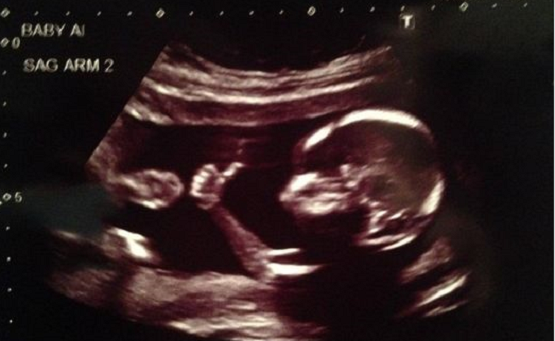Kentucky is following other states in attempting to pass legislation to protect unborn babies from abortion once they have a detectable heartbeat.
State Rep. Robert Goforth, R-East Bernstadt, pre-filed the bill in December with the hope of raising awareness about abortion and saving lives in Kentucky, Refinery 29 reports. The new state legislative session begins this week.
“When that baby’s heart’s beating, you have to recognize that is a life there. The only person that should be the author of life is God and not man,” Goforth said. “How do we change things? We bring it to people’s attention. We show them where the people stand on issues.”
His bill would prohibit abortions after an unborn baby’s heartbeat is detectable, about six weeks of pregnancy. Doctors could be charged with a felony for violating the measure, but exceptions would be allowed for medical emergencies that threaten the mother’s life.
State abortion activists already are criticizing the bill. Kate Miller, of the ACLU of Kentucky, hinted at a legal challenge if the bill passes, WEKU FM reports.
“That’s pretty close to when you would be missing your first period and from a practical perspective, many individuals don’t even know they’re pregnant at the six-week mark,” Miller said. “The ACLU of Kentucky has very serious concerns when it comes to the constitutionality of this legislation and we will be monitoring it very, very, very closely in this upcoming legislative session.”
Goforth indicated that he would not be surprised by a legal challenge, but he thinks the fight is worth it.
Follow LifeNews.com on Instagram for pro-life pictures and the latest pro-life news.
“If it ends up in the courts, I am fully prepared to fight and stand up for what I believe in and that is protecting this innocent, unborn child,” Goforth said.
In December, the Ohio legislature narrowly failed to override its governor’s veto of a similar heartbeat bill. Meanwhile, an Iowa heartbeat bill that passed in 2018 is being challenged in court by the abortion industry.
Heartbeat bills have been met with skepticism in the past, even by some pro-life groups, because of pro-abortion legal challenges. When pro-abortion groups win, state taxpayers often are forced to pay the pro-abortion groups’ legal fees.
North Dakota and Arkansas passed heartbeat bills several years ago, but federal courts struck down both laws. The Eighth Circuit Court of Appeals said the following about their ruling on the six-week ban: “Because there is no genuine dispute that (North Dakota’s law) generally prohibits abortions before viability — as the Supreme Court has defined that concept — and because we are bound by Supreme Court precedent holding that states may not prohibit pre-viability abortions, we must affirm the district court’s grant of summary judgment to the plaintiffs.”
The U.S. Supreme Court refused to hear an appeal of the cases in 2016.
There is more hope that the new conservative-majority U.S. Supreme Court may consider an abortion ban, but it is difficult to say if it would for certain. Some legal scholars have speculated that the court would be more likely to consider cases that gradually chip away at Roe v. Wade – such as a dismemberment abortion ban – rather than reverse it completely.








